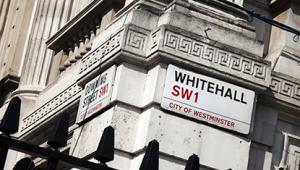Councils are overspending on social care, reducing key services, relying on reserves and resorting to generating income from alternative sources, the Public Accounts Committee has claimed – adding that the government’s insistence that the sector is in fact sustainable is “extremely troubling”.
A PAC report, published today, noted that local authorities in England have seen their core funding from central government slashed by nearly 50% since 2010/11.
It added that such cuts have coincided with increasing demand for services such as housing – the number of homeless people in the UK has risen by one-third in the past eight years – adding that increased demand for social care means councils have had to cut spending in other areas. Spending on services outside of social care has fallen by 32.6% between 2010/11 and 2016/17, it stated.
The report added that, despite these figures, the Ministry of Housing, Communities and Local Government insists the sector remains sustainable.
“The government is in denial about the perilous state of local finances. It insists the sector is sustainable yet is unwilling or unable to back up this claim,” said Meg Hillier, chair of the PAC.
“Flimsy assertions have no place in financial planning. The fact that government has bailed out councils with short-term fixes should be evidence enough that all is far from well.
“Government needs to get real, listen fully to concerns of local government and take a hard look at the real impact funding reductions have on local services. And then it needs to plan properly for the long-term,” she added.
The cross-party group of MPs added that it was “deeply dismayed” that MHCLG views the financial sustainability of local authorities solely in terms of a “small set of statutory services”, such as social care, rather than the full range of services local people need.
“It is extremely troubling that the government views the financial sustainability of councils solely in terms of statutory services, rather than the full range of services local people need and can reasonably expect councils to provide,” Hillier said.
Overall local authority spending on services fell by 19.2% in real terms between 2010/11 and 2016/17, which the PAC says has pushed the MHCLG into using short-term cash injections, such as the £1.4bn allocated in the 2018 Budget.
Permanent secretary at MHCLG, Melanie Dawes, told the PAC in November: “We believe the sector as a whole is sustainable if the amount of resources available to it can deliver the statutory services that it is required to deliver.”
The report recommended that MHCLG should work with local authorities to collect evidence on the impact on service users of providing funding through one-off funding boosts as opposed to long-term funding arrangements.
In the 2019/20 local government finance settlement communities secretary James Brokenshire said that core spending power would increase from £45.1bn in 2018-19 to £46.4bn in 2019-20 - a cash increase of 2.8%.
“This year’s settlement paves the way for a fairer, more self-sufficient and resilient future for local government. That is why local authorities will have more control over the money they raise and a real terms increase in their core spending power,” he said.
The Local Government Association recently warned that discretionary services are under threat due to cuts to central government funding.
Further reaction to the report:
Rob Whiteman, CIPFA chief executvie, said: “It is widely accepted that the current funding model for local authorities is no longer viable, and without bold policy solutions vital public services will continue to be eroded in order to balance the budget.
“We should all share the concern that if current trends are allowed to continue, it will be some of the most vulnerable in society who will be missing out on services and experiencing worsening outcomes as a result.”
Richard Watts, chair of the Local Government Association's resources board, said: “We agree with the Committee that the financial sustainability of local government cannot be defined by the ability of councils to just provide statutory duties.
“Pressures continue to grow in children’s services, adult social care, and efforts to tackle homelessness, and this is leaving increasingly less money for councils to fund other discretionary services, such as the maintenance of parks, certain bus services, cultural activities and council tax support for those in financial difficulty.”
Andrew Gwynne, shadow communities and local government secretary, said: “Nine of the ten most deprived councils in the country have seen cuts of almost three times the national average.
“And when you cut vital support services in such areas, social problems grow – and demand for those services only becomes greater.”











